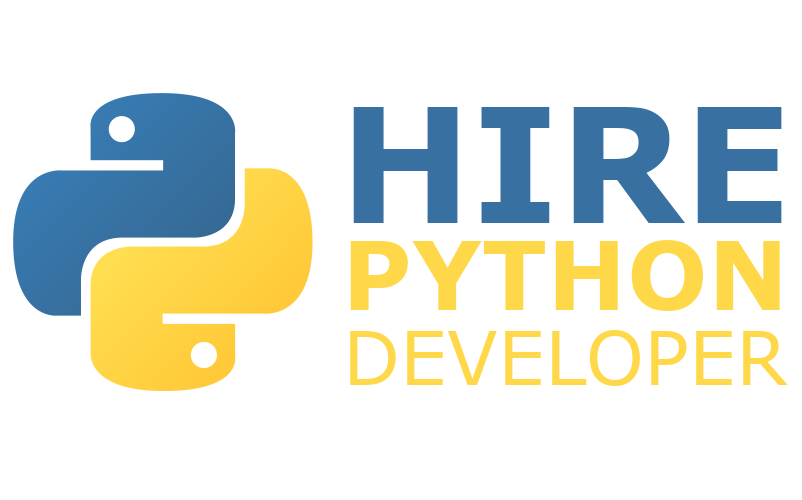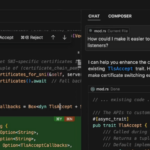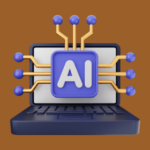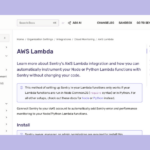Hiring a remote worker can be an intelligent choice if you need a Python developer for your project. Remote developers offer flexibility, cost advantages, and access to a global talent pool. However, finding and hiring the right remote Python developer can be challenging.
Key Takeaways
- Hiring a remote Python developer can offer many benefits, including flexibility, cost advantages, and access to global talent.
- To hire the best remote Python developer, you must have a clear understanding of your project requirements, define your hiring criteria, explore remote hiring platforms, craft a compelling job description, screen and shortlist candidates, conduct technical assessments, evaluate communication and collaboration skills, check references and portfolios, negotiate compensation and terms, and establish clear communication channels.
- By following the steps outlined in this guide, you can confidently hire the best remote Python developer for your project, ensuring success and growth for your business.
Understand Your Project Requirements
Before delving into the hiring process, it’s crucial to understand your project requirements clearly. Clearly defining your project’s scope, timeline, and objectives will help you identify the specific skills and expertise you need in a remote Python developer.
Consider factors such as:
- The project’s nature and complexity
- The programming languages and frameworks required
- The deadline for completing the project
- The size and experience level of your team
A clear understanding of your project requirements will help you evaluate the candidates’ technical skills and assess whether they can meet your project’s needs.
Define Your Hiring Criteria
Before you start your search for a remote Python developer, it’s essential to determine your hiring criteria. This will help you identify the qualifications and characteristics your ideal candidate must possess. Here are some factors to consider:
| Criteria | Description |
|---|---|
| Experience level | Determine the minimum level of experience required for your project. Do you need someone with years of experience or will a junior developer suffice? |
| Technical skills | List the required technical skills for the project. Are there any specific Python libraries or frameworks in which the developer must be proficient? |
| Communication abilities | Assess the candidate’s communication skills to ensure they can effectively collaborate with team members and communicate project progress. |
| Cultural fit | Consider the candidate’s values, work style, and personality to ensure they align with your company culture. |
By defining your hiring criteria, you can streamline the hiring process, attract the right candidates, and, ultimately, find the best remote Python developer for your project.
Explore Remote Hiring Platforms
Remote hiring platforms have become popular for businesses looking for remote Python developers. These platforms allow you to connect with a pool of talented developers worldwide. Here are some commonly used remote hiring platforms:
| Platform Name | Description |
|---|---|
| Upwork | One of the largest freelance marketplaces with a large pool of skilled Python developers. |
| Toptal | A highly selective platform with a rigorous screening process for Python developers, ensuring a high level of talent. |
| Kaynes | A global platform with a large pool of developers specializing in Latin America Python developers. |
When selecting a platform, consider factors such as the cost of services, the quality of candidates, and the platform’s reputation. Take the time to research and explore multiple platforms to find the one that best suits your needs.
Craft a Compelling Job Description

Writing a detailed job description is essential for attracting top talent for your remote Python developer position. When crafting your job description, highlight the role’s unique requirements, including your specific technical requirements, preferred experience level, and cultural fit.
Begin by clearly outlining the responsibilities and expectations of the role, using bullet points to make the information easy to digest. Next, describe the skills and qualifications you seek in a remote Python developer, including any programming languages, frameworks, or libraries they must be proficient in.
Be sure to mention any required soft skills, including communication and collaboration abilities, and demonstrated experience working with remote teams. Use specific language to illustrate what you seek, such as “proven experience managing remote workflows” or “demonstrated ability to communicate complex technical concepts to non-technical stakeholders.”
| What to Include in Your Job Description: | Why It’s Important: |
|---|---|
| Job title and a brief overview of the role | Helps potential candidates quickly determine if they are a good fit for the position |
| Responsibilities and expectations | It gives candidates a clear understanding of what they will be responsible for |
| Required skills and qualifications | It helps you identify candidates with the necessary technical and soft skills for the position |
| Preferred experience level | Allows you to attract candidates with the right level of experience for your project |
| Cultural fit | Ensures that candidates align with your company’s values and work style |
| Benefits and perks | Highlights the advantages of working for your company and can help attract top talent |
Wrap up your job description by summarizing the benefits of working remotely for your company. Emphasize the flexibility, autonomy, and work-life balance that remote work offers, and be sure to include any unique perks you offer, such as unlimited vacation time or professional development opportunities.
Screen and Shortlist Candidates
Once you have received applications from potential candidates for your remote Python developer position, it’s time to start reviewing and screening them. Review resumes and cover letters to assess their skills and qualifications and shortlist the most promising candidates to move forward in the hiring process.
At this stage, you can conduct preliminary interviews to understand the candidates better and assess their suitability for the position. Use this opportunity to ask about their experience, communication skills, and ability to work remotely.
How to Screen Candidates
When screening candidates for your remote Python developer position, consider the following factors:
| Factor | Considerations |
|---|---|
| Technical Skills | Assess their proficiency in Python development through coding assessments or by reviewing their past projects. |
| Experience Level | Consider their years of Python development experience and familiarity with similar projects. |
| Communication Skills | Assess their ability to communicate clearly and concisely and their comfort level with remote communication tools. |
| Cultural Fit | Consider their work style, values, and personality to ensure they align with your company culture and team dynamic. |
By evaluating candidates against these criteria, you can confidently identify the most promising candidates and move forward in the hiring process.
Conduct Technical Assessments
Assessing the technical skills of potential remote Python developers is crucial in determining their proficiency. You can consider different methods for evaluating their skills, such as coding assessments or assignments. Alternatively, you can provide them with a small project or challenge to complete within a specified timeframe.
When setting your technical assessments, ensure they cover the relevant areas your project requires, whether it’s back-end development, web development, or machine learning. Be clear about your expectations, timelines, and resources while leaving room for creativity and independent thinking.
One way to conduct technical assessments is to use coding platforms like HackerRank or CodeSignal, which provide standardized tests for common programming languages like Python. These tests measure various skills, including problem-solving, data structures, and algorithms. This method allows you to gauge the candidate’s proficiency and compare their results with other candidates.
Evaluate Communication and Collaboration Skills
Effective communication and collaboration are crucial when working with a remote Python developer. It is important to assess the candidate’s ability to communicate clearly, collaborate with team members, and manage remote work efficiently.
Consider conducting a video interview to evaluate the candidate’s communication skills during the hiring process. Ask questions that require thoughtful and clear responses to gauge their ability to express themselves effectively.
Additionally, you can ask for references from their previous remote work experience and get feedback on their communication and collaboration skills. This will help you gain insights into how they interact with team members and handle remote work challenges.
It is also recommended to test the candidate’s collaboration skills by assigning a small project or task and assess their ability to communicate and coordinate with other team members. This will give you an understanding of how they will interact in a remote team environment and if they are a good fit.
Check References and Portfolios
Before deciding on your remote Python developer, it’s essential to check their references and portfolios. This step provides valuable insights into the candidate’s past work experiences and performance. By reviewing their portfolio, you can assess the quality of their previous Python projects, and determine if their skills are a good match for your project requirements.
When checking references, take note of their feedback on the candidate’s communication skills, work ethics, and ability to meet deadlines. These factors are critical when working with a remote developer, especially when collaborating across different time zones and schedules. Be sure to ask specific questions that relate to your project requirements.
| Questions to Ask When Checking References: |
|---|
| Can you tell me about the candidate’s technical skills in Python development? |
| How would you describe the candidate’s work ethic and ability to meet deadlines? |
| What was your experience working with the candidate’s communication and collaboration skills? |
By conducting a thorough evaluation of the candidate’s references and portfolio, you can confidently select the best remote Python developer for your project.
Negotiate Compensation and Terms
Once you have selected the ideal candidate for your project, it’s time to discuss compensation and any additional terms. Negotiating a fair compensation package ensures that both parties are satisfied and motivated to deliver their best work.
Begin the conversation by outlining the salary, benefits, and any potential bonuses for the remote Python developer. Consider the candidate’s experience level, technical skills, and the size and scope of the project when determining the compensation package.
Be transparent about the payment schedule and any additional terms, such as non-disclosure agreements or intellectual property ownership. Clarify the expectations for work hours and deadlines, and ensure that both you and the remote Python developer are on the same page regarding project goals and timelines.
Keep an open mind during the negotiation process and be prepared to make concessions if necessary. Collaborative communication and a willingness to compromise can lead to a successful and rewarding working relationship with your remote Python developer.
Set Up Clear Communication Channels
Effective communication is key to the success of any remote work arrangement. As such, it’s important to establish clear communication channels from the get-go to ensure seamless collaboration with your remote Python developer.
One popular tool for remote communication is Slack, which allows for real-time messaging, file sharing, and group discussions. Zoom is another tool that offers video conferencing capabilities, making it easier to conduct virtual meetings and discussions with your remote team.
Project management software like Asana or Trello can also be useful in tracking progress, assigning tasks, and monitoring deadlines. It’s important to find the right combination of tools that work best for your team and project.
Conclusion – How to Hire the Best Remote Python Developer

Hiring a top-tier remote Python developer requires a well-strategized approach to ensure skills, experience, and culture fit. Follow these steps to find the best candidate:
1. Define Your Project’s Needs:
- Scope of Work: Outline the specific tasks and responsibilities the developer will handle.
- Skill Set: Beyond Python, consider related frameworks or technologies you require, such as Django, Flask, or PyTorch.
2. Use Specialized Job Boards:
Leverage platforms like Toptal, Stack Overflow Jobs, or Python.org’s job board which cater to tech and Python-specific audiences.
3. Craft a Clear Job Description:
- Key Responsibilities: Detail the daily tasks and bigger projects.
- Desired Experience: Mention years of experience and past project types.
- Technical Skills: List essential and nice-to-have technologies and tools.
- Soft Skills: Highlight attributes like communication, teamwork, or problem-solving.
4. Test Technical Skills:
Use coding tests or platforms like Codility or HackerRank. Customize tests to reflect real-world challenges the developer might face in your projects.
5. Assess Soft Skills:
For remote roles, attributes like self-motivation, communication, and time management are crucial. Include scenario-based questions in your interviews.
6. Check References and Past Work:
Engage with past employers or review their GitHub repositories to assess code quality, consistency, and complexity.
7. Offer a Trial Period:
Before full-time commitment, consider a short-term contract to evaluate the developer’s performance and fit within your team.
Remember: Hiring the best remote Python developer goes beyond just technical aptitude. Their ability to communicate effectively, work autonomously, and integrate into your team’s culture is equally paramount.
Keep the Big Picture in Mind
It’s important to remember that hiring a remote developer is more than just finding someone with the right skills. You are building a long-term relationship with someone who will be contributing to your business’s success. Ensure you are on the same page when it comes to your project’s objectives, timelines, and communication expectations. Keep the big picture in mind, and invest in building a strong, collaborative relationship with your remote Python developer to achieve your goals together.
FAQs – How to Hire the Best Remote Python Developer

1. FAQ: What technical skills should I prioritize when hiring a remote Python developer?
Answer: Beyond a strong foundation in Python, consider specializations that align with your project. For instance:
- For web development: Familiarity with frameworks like Django or Flask.
- Data processing tasks: Skills in Pandas and NumPy.
Example: If you’re developing a web app that requires real-time features, seek developers skilled in Django Channels.
Pro-tip: Request candidates to share their GitHub repositories. It gives you a glimpse of their coding style, preferred frameworks, and contributions to open-source projects.
Code Sample:
# A basic Flask endpoint @app.route('/hello', methods=['GET'])
def hello_world():
return 'Hello, World!'2. FAQ: How can I ensure a remote Python developer has the necessary soft skills?
Answer: Soft skills are paramount for remote developers. Key attributes include proactiveness, effective communication, and discipline.
Example: During interviews, ask how they managed a project delay or communication breakdown in past roles.
Pro-tip: Use behavioral interview techniques. Pose scenarios and assess their problem-solving and communication strategies.
3. FAQ: What’s the best way to test the proficiency of a potential hire?
Answer: Coding challenges reflecting real-world scenarios are ideal.
Example: If you’re building an e-commerce platform, task them with designing a product recommendation algorithm using Python.
Pro-tip: Platforms like Codility and HackerRank offer customizable tests. But ensure tasks mirror your actual project needs.
Code Sample:
def recommend_products(user_purchase_history, all_products):
# Basic recommendation logic
...
return recommended_products4. FAQ: How do I ensure the remote developer integrates well with my existing team?
Answer: Foster collaboration. Use tools like Slack or Microsoft Teams for seamless communication and introduce them to your team’s workflow and culture.
Example: Organize virtual team-building activities or pair programming sessions to speed up the integration process.
Pro-tip: Always have a knowledge-transfer or onboarding period. It ensures the new developer gets acquainted with both the team and the project.
5. FAQ: How do I handle timezone differences when hiring a remote Python developer?
Answer: Effective communication is key. Set mutually agreeable working hours, and ensure there’s an overlap with your team’s active hours for synchronous activities.
Example: If your team is based in New York and you hire a developer from Berlin, an overlap can be from 9 AM to 12 PM EST.
Pro-tip: Use tools like World Time Buddy to track time zones and find suitable meeting times. Also, encourage asynchronous communication methods, such as email or project management tools, for tasks that don’t require immediate feedback.
Remember, hiring the best remote Python developer is both an art and science. Balancing technical prowess with team fit and effective communication is the key.
Lydia is a seasoned technical author, well-versed in the intricacies of software development and a dedicated practitioner of Python. With a career spanning 16 years, Lydia has made significant contributions as a programmer and scrum master at renowned companies such as Thompsons, Deloit, and The GAP, where they have been instrumental in delivering successful projects.
A proud alumnus of Duke University, Lydia pursued a degree in Computer Science, solidifying their academic foundation. At Duke, they gained a comprehensive understanding of computer systems, algorithms, and programming languages, which paved the way for their career in the ever-evolving field of software development.
As a technical author, Lydia remains committed to fostering knowledge sharing and promoting the growth of the computer science community. Their dedication to Python development, coupled with their expertise as a programmer and scrum master, positions them as a trusted source of guidance and insight. Through their publications and engagements, Lydia continues to inspire and empower fellow technologists, leaving an indelible mark on the world of scientific computer science.







